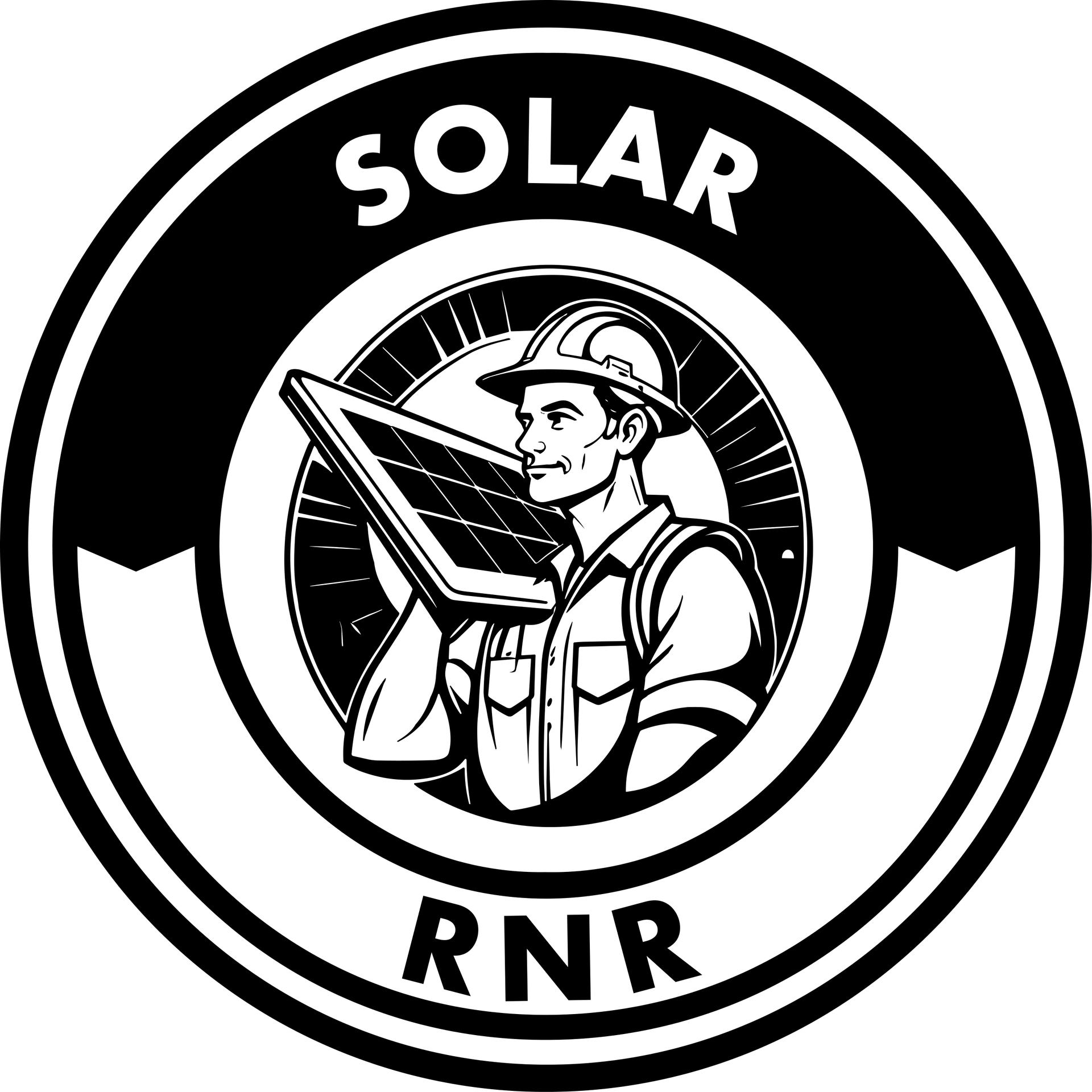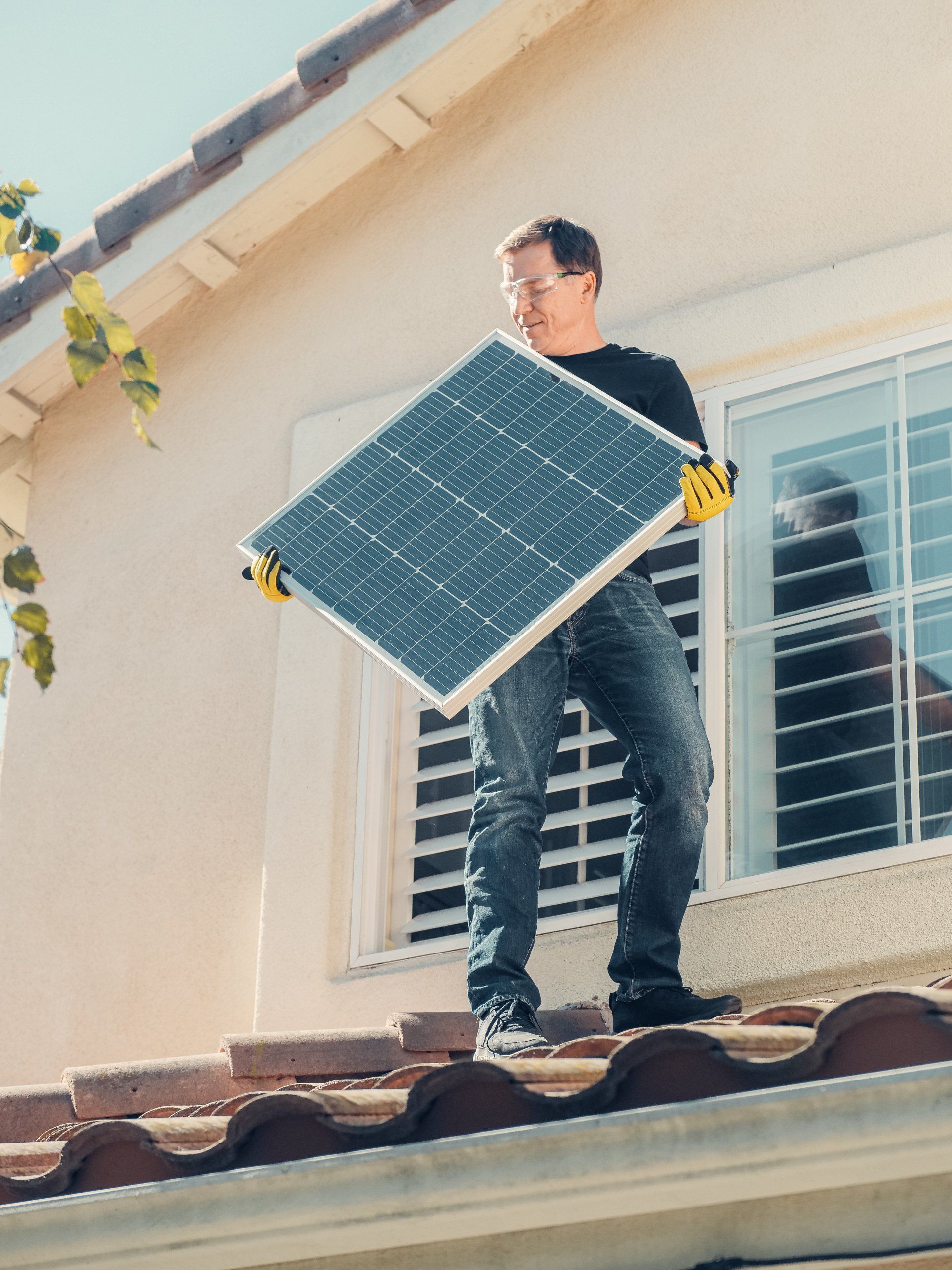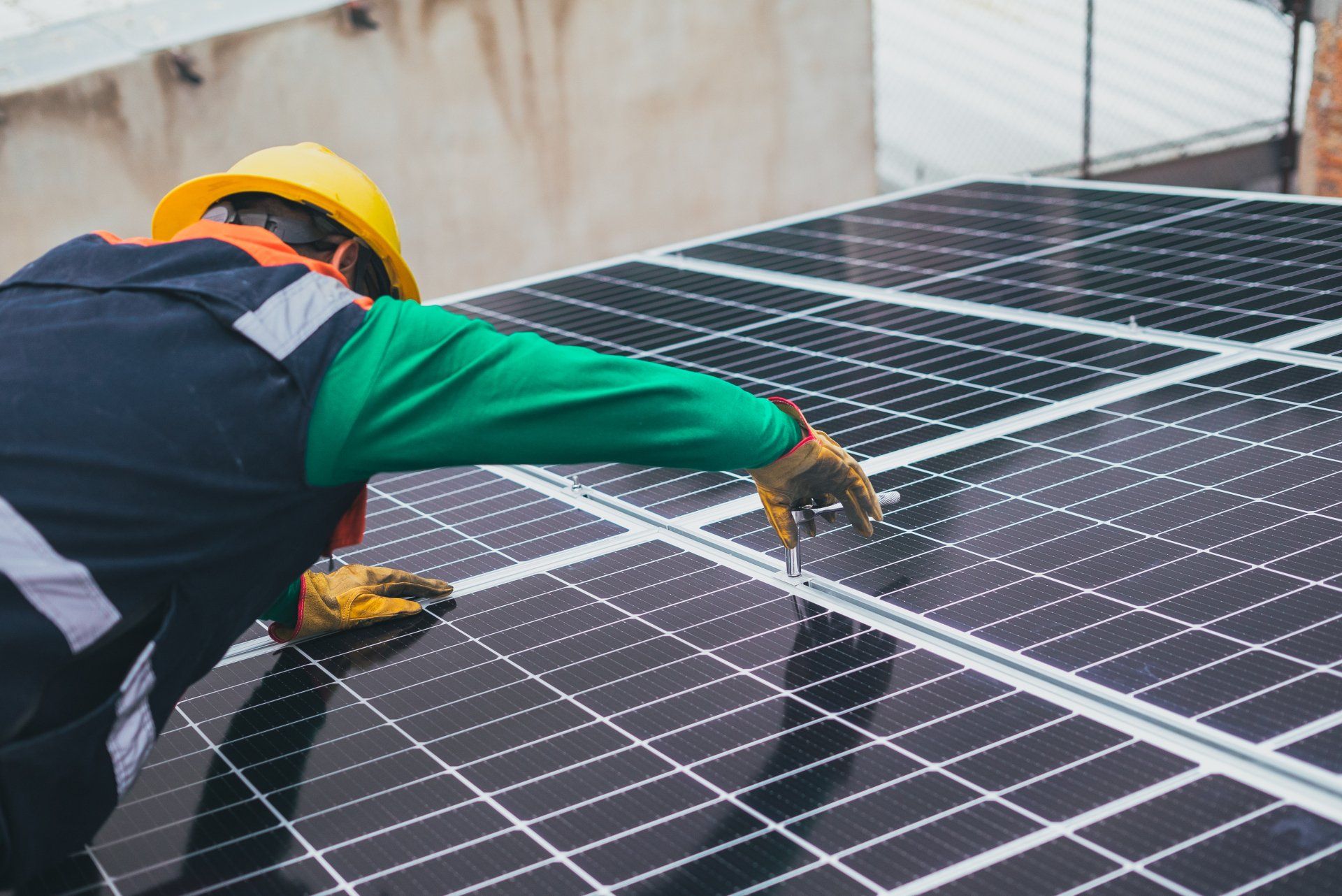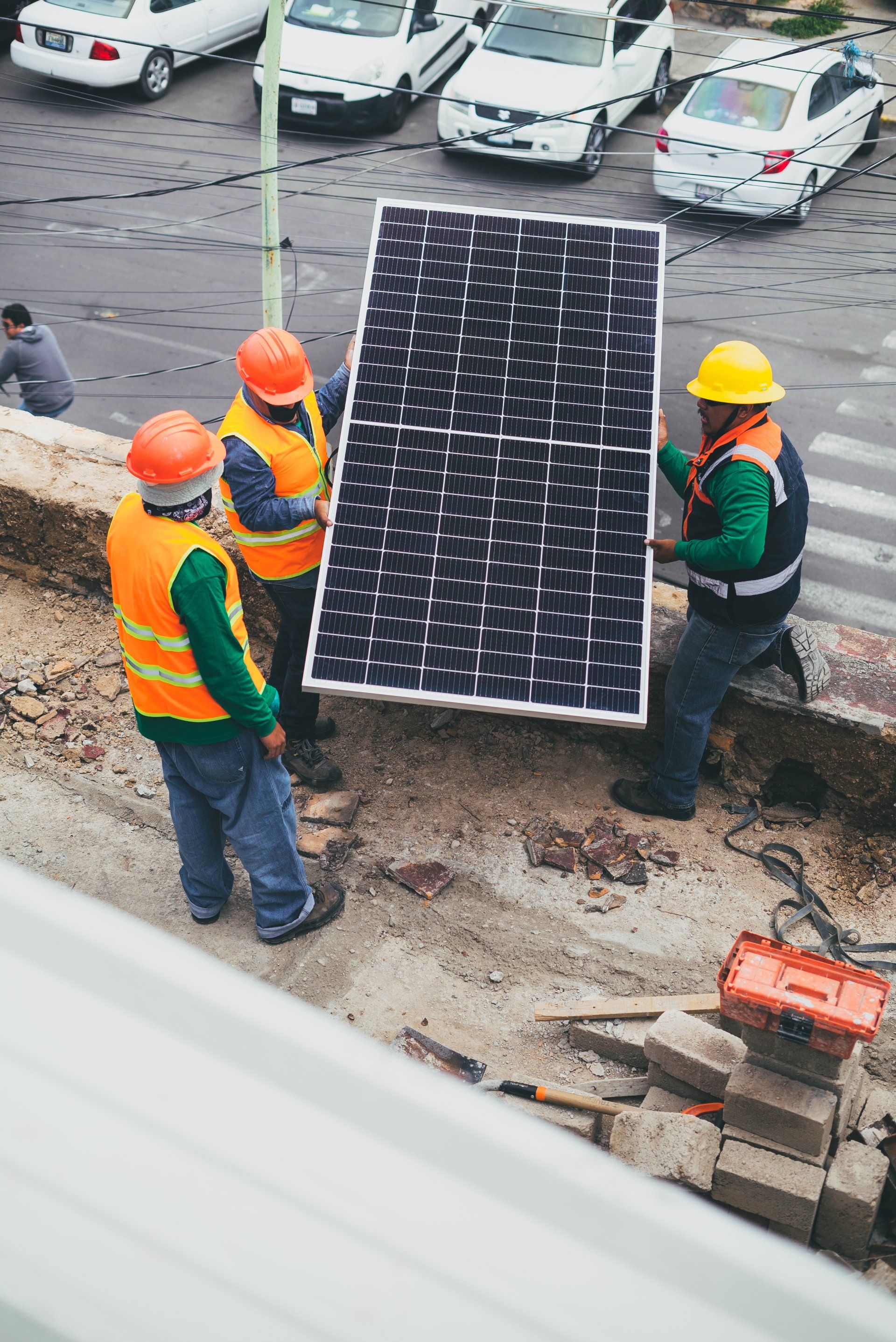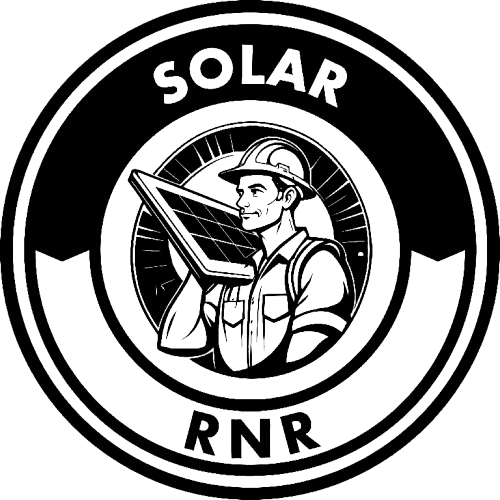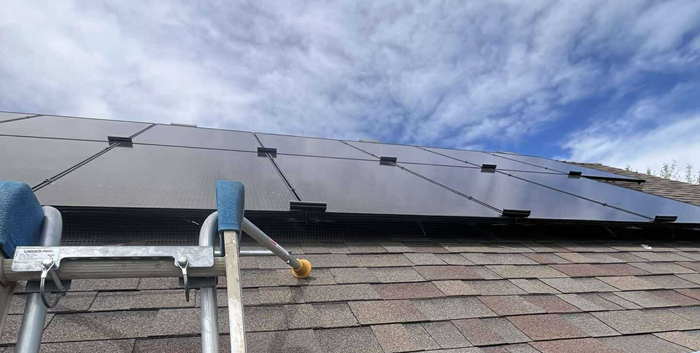Solar Detach and Reset Information
Solar Panel Cleaning 101: How Dirt, Dust, and Debris Impact Your Energy Output
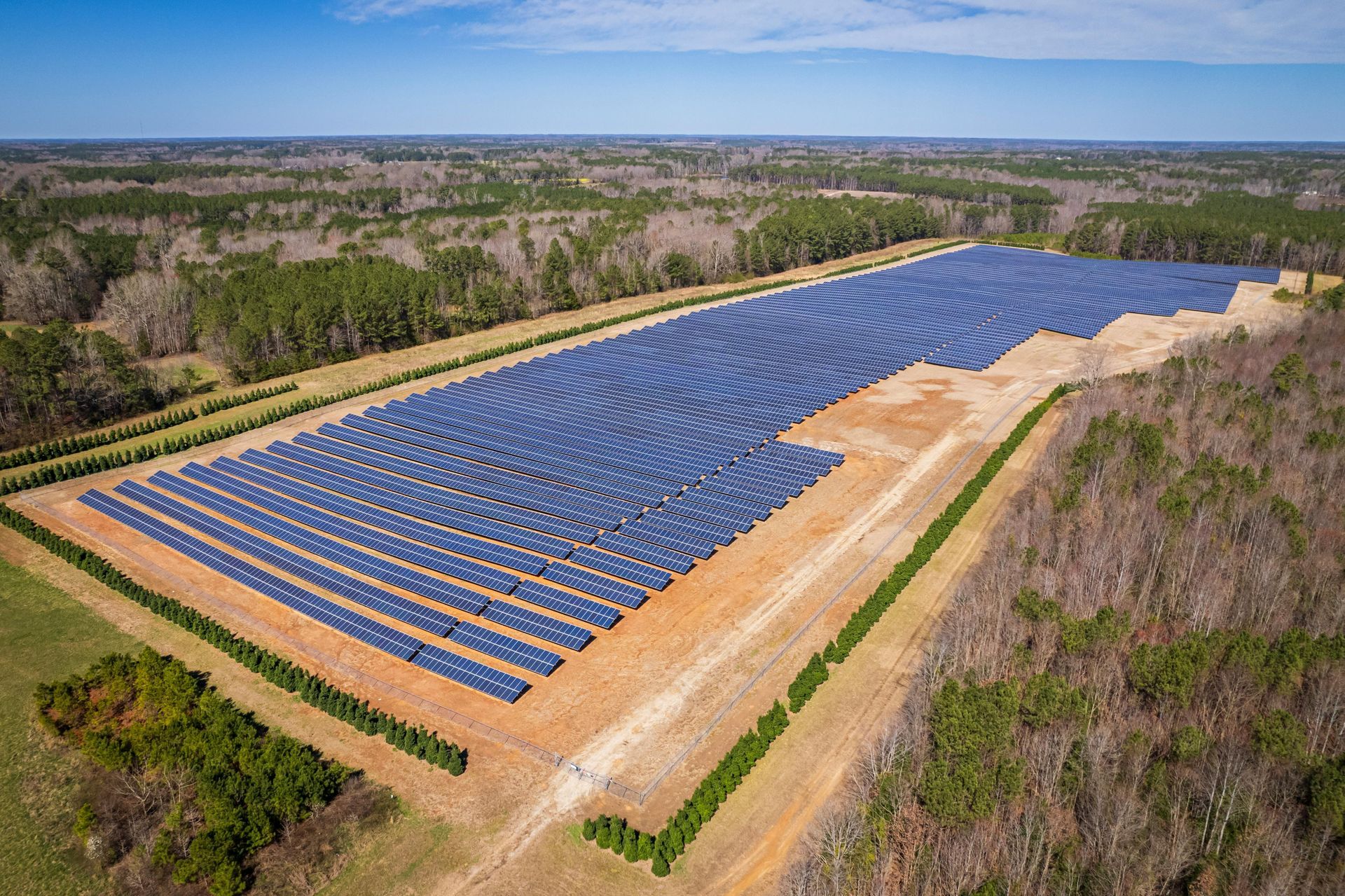
Solar panels are one of the most reliable and low-maintenance energy solutions available today. Once installed, they quietly convert sunlight into electricity day after day. However, just like your windows or car windshield, solar panels don’t stay spotless forever. Dust, pollen, leaves, bird droppings, and other debris accumulate over time — and that buildup can reduce how much sunlight reaches the cells, cutting into your energy production.
If you want to get the most out of your solar investment, regular cleaning should be part of your solar maintenance routine. In this guide, we’ll explore why solar panel cleaning is essential, how much dirty panels can affect efficiency, when and how to clean them, and why hiring professionals like Solar RNR is often the safest and smartest choice.
Why Clean Solar Panels Matter
When solar panels are clean, they absorb the maximum amount of sunlight and convert it into electricity at peak efficiency. When dirt or debris accumulates, it creates a barrier between the sun and the photovoltaic (PV) cells, reducing the amount of energy produced.
The difference may not be noticeable at first, but over time, even small efficiency losses add up to higher electricity bills and a lower return on investment.
Some key facts:
- Studies from the National Renewable Energy Laboratory (NREL) show that dirty panels can lose anywhere from 5% to 25% efficiency, depending on the environment.
- In areas with frequent dust storms, wildfire smoke, or heavy pollen seasons, losses can be on the higher end of that scale.
- Even urban smog can leave a thin film that reduces light penetration.
The bottom line? Clean panels generate more electricity, and more electricity means more savings.
Common Sources of Solar Panel Buildup
Understanding what causes dirty panels will help you know when and how often cleaning is necessary:
- Dust and Dirt
- Wind can carry fine particles that settle on solar panels, especially in dry climates or near construction zones.
- Over time, this layer of dust acts like a film, blocking sunlight.
- Pollen
- Seasonal pollen is sticky and often resists being washed away by rain.
- It’s particularly problematic in spring, coating panels with a yellow-green residue.
- Bird Droppings
- One of the worst offenders. Unlike dust, bird droppings are opaque and acidic, creating hot spots that reduce efficiency and can even damage panels.
- Leaves and Organic Debris
- In fall, nearby trees can shed leaves, covering sections of the array.
- Organic matter can trap moisture and attract pests.
- Snow and Ice
- Snow completely blocks panels until it melts or is cleared.
- While snow often slides off angled panels, heavy accumulation can linger.
- Air Pollution and Smog
- In urban areas, pollution particles settle on panels, leaving a grimy film.
- Rain alone often isn’t strong enough to wash this away.
How Dirty Panels Affect Performance
A single bird dropping may not seem like a big deal, but the impact can be surprising. Unlike dust, which reduces performance across the whole panel, concentrated debris like bird droppings or leaves can block entire sections of cells. This causes “hot spots,” where part of the panel overheats because it isn’t producing electricity properly. Over time, hot spots can permanently damage a solar panel.
Even light dust can cause noticeable losses. For example:
- Light dust layer: 5–10% production loss
- Heavy dust accumulation: 15–25% production loss
- Bird droppings / leaves: Localized shading can reduce output for the entire string of panels
When your solar system is designed to offset most or all of your electricity bill, even a 10% efficiency loss could mean hundreds of dollars in lost savings each year.
DIY Solar Panel Cleaning: Safe Practices
If you decide to clean your solar panels yourself, safety and proper technique are essential.
What You’ll Need:
- A soft-bristle brush or sponge with a long handle
- A garden hose with gentle water pressure
- A squeegee for drying
- Mild soap (optional, but avoid harsh chemicals)
Steps for Cleaning:
- Turn off the system before cleaning.
- Rinse with water to remove loose dirt and debris.
- Gently scrub with a soft brush and mild soapy water if needed.
- Rinse again to remove soap residue.
- Dry with a squeegee to prevent water spots.
Safety Tips:
- Never use high-pressure washers — they can damage seals and glass.
- Avoid harsh chemicals or abrasive pads.
- Don’t climb onto the roof unless you have the proper safety equipment.
DIY cleaning works for single-story homes with easy roof access, but for many homeowners, it’s safer to leave it to professionals.
Why Professional Cleaning is Worth It
Professional solar panel cleaning services, like those from Solar RNR, go beyond just spraying panels with water.
Benefits of Professional Cleaning:
- Safety: No need to risk climbing ladders or walking on your roof.
- Thoroughness: Professionals use deionized water and specialized equipment for a streak-free finish.
- System inspection: Many companies also check for wiring issues, cracks, and inverter performance.
- Warranty protection: Some manufacturers require professional maintenance to keep warranties valid.
- Time savings: Cleaning a full array can take hours if done yourself.
Professional cleaning ensures your system isn’t just clean — it’s optimized and inspected for long-term performance.
How Often Should You Clean Your Solar Panels?
The frequency depends on where you live and your environment:
- Dusty/desert regions: Every 3–4 months.
- Urban areas with pollution: Twice per year.
- Areas with heavy pollen or bird activity: Quarterly or as needed.
- Residential neighborhoods with moderate debris: Once or twice per year.
- After major storms or wildfires: Always schedule a cleaning to remove ash, soot, or storm debris.
As a rule of thumb, inspect your panels seasonally and clean them at least once a year — more often if you notice visible buildup.
Monitoring Energy Output
One of the best ways to know if your panels need cleaning is to monitor your system’s performance. Most solar installations come with a monitoring app that tracks daily, weekly, and monthly output.
Look for:
- A sudden drop in production not explained by weather.
- Lower-than-expected output compared to previous months or years.
- Discrepancies between different strings of panels.
If you see a consistent decline, dirt and debris could be the cause.
Solar Cleaning Costs and ROI
Professional solar panel cleaning typically costs:
- $150–$300 for a standard residential system.
- Larger systems or more difficult roof access may cost more.
While this may seem like an added expense, the savings quickly outweigh the cost. For example, if dirty panels cause a 15% loss in energy and your system typically saves $1,500 per year, that’s $225 in lost savings annually — roughly the same as one cleaning session.
Regular cleaning ensures you maximize your ROI year after year.
Why Choose Solar RNR for Solar Panel Cleaning?
At Solar RNR, we understand that clean panels are efficient panels. Our solar cleaning services are designed to:
- Safely and effectively remove dirt, dust, pollen, and bird droppings.
- Use industry-approved equipment that protects your panels.
- Include inspections for cracks, wiring issues, and inverter performance.
- Offer affordable maintenance packages for year-round care.
- Provide peace of mind knowing your system is always operating at its best.
We don’t just clean — we help you protect your solar investment.
Conclusion
Solar panels are a powerful investment in clean energy, but keeping them clean is essential to ensure maximum efficiency and savings. From dust and pollen to bird droppings and smog, buildup can reduce your system’s output and even cause long-term damage if ignored.
Regular cleaning — whether done yourself or with professional help — protects your panels, improves performance, and extends the life of your system. For most homeowners, professional solar cleaning is the safest and most effective way to keep panels running at peak efficiency.
At Solar RNR, we’re committed to helping homeowners maximize their solar savings through expert cleaning and maintenance services. Contact us today to schedule a cleaning and keep your solar panels shining bright all year long.
